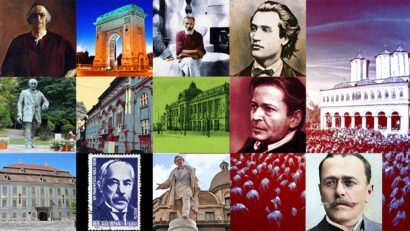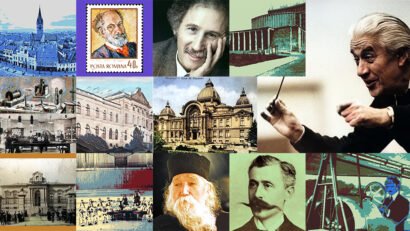Baron Franz Nopcsa von Felso-Szilvas
The non-conformist Baron Franz Nopcsa von Felso–Szilvas is considered the founder of two disciplines: paleobiology and Albanian studies.

România Internațional, 30.11.2013, 14:04
The non-conformist Baron Franz Nopcsa von Felso–Szilvas is considered the founder of two disciplines: paleobiology and Albanian studies. He was born in 1877 in the area of Hunedoara, in the south-estern part of the then Austrian-Hungarian Empire and today’s western Romania. Most records mention his name as a nobleman of Hungarian origin, yet according to some he was an ethnic Romanian who became Magyarised. The key argument in favour of this latter theory is the name “Nopcea”, which was the western Romanian pronunciation of the word “noapte” (night).
One of his grandparents was allegedly another famous and eccentric character in the Hateg area, the nobleman “Fata neagra” (Black Face) who when darkness came would put a hood on his head and rob travellers. Local legends depict him as an outlaw, who stole from the rich to give to the poor.
Nopcea’s career as a man of science began rather early. When he was 18 he left for Vienna to study palaeontology and geology. He took with him a couple of strange bones his sister had discovered in the Retezat Mountains in 1895. He later discovered that the bones were fossils of the dwarf dinosaurs who had populated the Hateg Land several hundred millions of years ago. He earned his Ph.D. in sciences and published almost 150 science articles in the field of paleontology and geology.
Nopcea’s openness to all things new prompted him to focus his attention on photography and the art of warfare. Austria-Hungary’s foreign policy of expanding their influence towards the regions controlled by the Ottoman Empire took him further in the Balkans, actually to Albania, a country that would gain its independence in 1912. Many adventurers were seeking fortune and glory in the Balkans, and Nopcea was one of them. He got involved in local conflicts and was even wounded in some of the clashes. Nopcea used to be very popular in the Albanian nationalistic circles that were fighting for independence, as well as a favourite to the throne of Albania. A period photograph features the Baron armed, and wearing the Albanian national costume. During his stay in Albania he learned the locals’ language and grew acquainted with their habits and customs; he was also keen on studying Albanian culture. Nopcea was one of the very few Western Europeans to travel to Albania around the troubled 1900s. Nopcea was also the first specialist in Albanian studies coming from the Austrian-Hungarian Empire. He wrote around 50 scientific papers on the Albanians’ language, history, ethnology, traditional music and laws.
In November 1906 in Bucharest Nopcea met Baiazid Doda, an Albanian who was a resident in Romania’s capital city. The two started a professional relationship as well as a love affair. According to Nopcea himself, Doda was the only one who, as a secretary and lover, truly loved him, and one whom Nopcea completely trusted. After the First World War, the Romanian state seized Nopcea estates and the Baron, taking Doda with him, had no choice but to settle in Vienna. Yet he would not give up his assets without a fight, and in the brawl he suffered a severe head injury, as some peasants flung stones at him and beat him. On April 23rd, 1933 in a hotel room in Vienna Nopcea shot his lover as he was asleep and then he shot himself. In the farewell letter, the adventurer baron explained that his decision had come from the desperation caused by poverty and misery.
Some of the fossils discovered in Hateg Land were given baron Nopcea’s name. The vertebra of a sauropod dinosaur got the name Nopcsaspondylus. Other dinosaurs also received the Baron’s name: elopteryx nopcsai, thethysaurus nopcsai, hyposaurus nopcsai, mesophis nopcsai. A six-meter long sauropod Nopcea had studied was given the name Magyarosaurus by the baron himself. One of Baron Nopcea’s contributions to evolutionism, which was only accepted by the expert community in the 1960s was the idea that birds evolved in an area dominated by dinosaurs. Another scientific hypothesis put forward by Nopcea and shared by the scientific community today was that Mesozoic reptiles had warm blood.





























